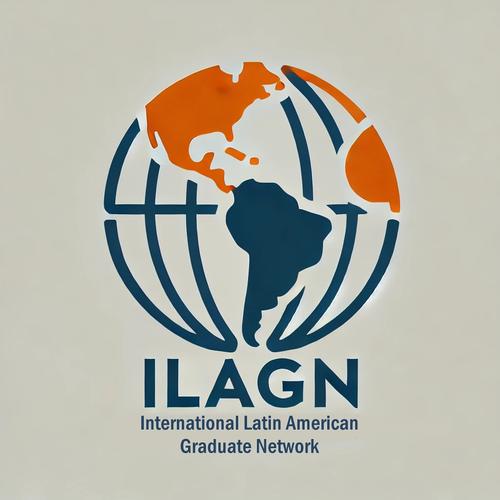International Latin American Graduate Network
Welcome to the International Latin American Graduate Network (ILAGN)
Who We Are
The International Latin American Graduate Network (ILAGN) is an interdisciplinary and transnational platform for early career researchers, master’s students, and PhD candidates working on Latin America. Originally emerging from the Oxford Berlin Latin American Graduate Network, ILAGN has since expanded to include a broader international community of scholars from diverse backgrounds and disciplines.
Our Mission
ILAGN was founded with the aim of creating a space for young researchers to connect, share ideas, and engage in critical discussions on Latin American studies. We seek to:
- Promote interdisciplinary research on Latin America
- Facilitate the exchange of knowledge between institutions and scholars worldwide
- Organise academic events such as conferences and workshops
- Support early career researchers in developing their academic and professional careers
Our Activities
Our key activities include:
- Annual Conferences & Workshops: ILAGN organises conferences and workshops to provide researchers with a platform to present their work, receive feedback, and network with their peers.
- Networking & Collaboration: ILAGN connects young scholars across the globe, encouraging international cooperation and joint research initiatives.
Join Us
We welcome master’s students, PhD candidates, and early career researchers from all disciplines with an interest in Latin America. By joining ILAGN, you become part of a vibrant community of scholars dedicated to advancing knowledge on the region.
For more information, upcoming events, and how to get involved, please contact us at ilag-network@lai.fu-berlin.de
Stay connected and follow us for updates on our latest initiatives and events!
Upcoming events:
The International Latin American Graduate Network is pleased to announce the call for abstracts for our upcoming graduate conference, Temporalities in Latin America: Experiences and Conceptualisations of Time across Past, Present, and Future, to be held at the Institute for Latin American Studies (LAI), Freie Universität Berlin, from 2-4 July 2025.
Conference Theme
Temporalities encompass the ways in which time is experienced, perceived, and understood as a dynamic structure shaping existence. The plural form, temporalities, highlights the coexistence of multiple, often contradictory concepts of time, influenced by diverse values, political and religious beliefs, as well as economic and technological frameworks. Latin America serves as a striking example, where, among others, indigenous and (post)colonial time regimes, revolutionary futures and historical continuities, global rhythms and local temporalities have been in constant negotiation.
We invite contributions from various disciplines that explore temporalities in Latin America through projections into the future, memory practices, and everyday experiences, highlighting time as both a lived and socially constructed reality.
Thematic Focal Points
Contributions may engage with, but are not limited to, the following topics:
- Past and Present: How is history interpreted, preserved, and remembered in Latin America? What role does collective memory play in shaping identities?
- Political Temporalities: How do revolutionary movements, postcolonial transformations, and democratic transitions shape societal conceptions and experiences of time?
- Indigenous Temporalities: What alternative perspectives on time and history do indigenous knowledge systems offer? How do these concepts influence contemporary understandings of nation, identity, sustainability, and nature?
- Uncertainty and Future Imaginations: In the face of social, economic, and environmental crises, how is the future imagined and negotiated? What roles do ideas of progress and development play?
- Temporalities of Migration: How are temporalities reconfigured in migratory processes? This includes the perspectives of migrants (prolonged waiting times, transit periods, uncertain futures) and migration policies (asylum procedures, deportation timelines, and regularisation processes).
- Digital Temporalities: How is digitalisation reshaping perceptions of time in Latin America? How does unequal access to technologies and digital infrastructures affect these transformations?
Submission Guidelines
We welcome proposals from PhD candidates, master’s students, and early career researchers across all disciplines. Presentations should not exceed 15 minutes. The working languages of the conference will be English and Spanish



